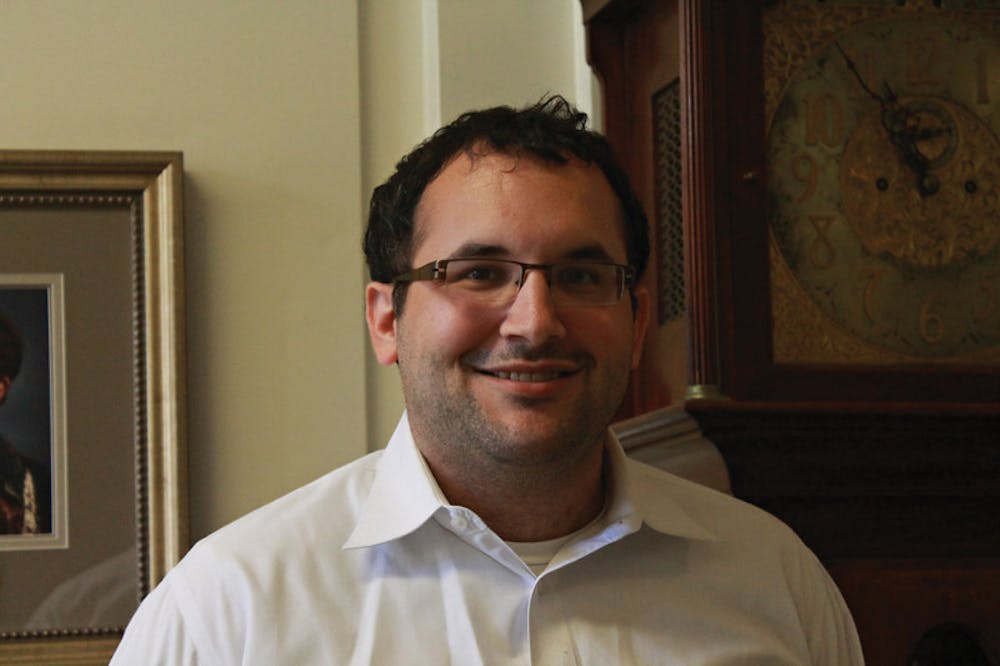Since August, Marc Peters, the University’s first men’s health coordinator, has led campus discussions and trainings on the prevention of sexual violence and the creation of safe spaces on campus.
“How men are sexualized plays into the type of violence that exists in college communities,” Peters said. “Men don’t have a lot of spaces to have open and honest conversations about the different things that they are dealing with, like how they grapple with emotions or deal with conflict,” he said.
One of Peters’ primary charges involves working with Greek organizations and men’s athletic teams to foster conversation around “healthy masculinity,” he said.
Grant Senne ’16 has worked with Peters both as president of Theta Delta Chi and as a member of the football team. Peters collaborated with Theta Delta Chi to ensure members “were all on the same page when it came to consent, interacting with men and women and preventing people from falling into a bad situation,” Senne said.
Peters helped facilitate conversations among members that otherwise would not have occurred and created an “openness” within the fraternity, Senne added.
“The thing I like about Marc is that he’s not a speaker brought in by the University who’s politically charged,” Senne said. “He’s talking about understanding health, emotions and your own perceptions and interactions with people.”
“He makes it a big self-reflection process,” he added.
Peters also helps coordinate the Sexual Assault Peer Education program’s trainings of new members and presentations aimed at creating dialogue about sexual assault.
Hannah Gribetz ’15, Sexual Assault Peer Education educator and student staff member at Health Education, said Peters helps SAPE determine its future plans and “role on campus,” which has led to the recruitment of new members and greater interest in the sexual assault prevention trainings held throughout the year.
“He always makes sure to act more as a facilitator,” rather than as a group leader, Gribetz said, adding that he helps “make the connections we need to make or suggest things if we get stuck on a problem.”
Gribetz said the University is in need of “a great role model for healthy masculinity” like Peters who ensures discussions “what it means to be a man” are occurring.
“When students come into college, particularly men, you have 18 years of being socialized in what it means to be a man and what ‘man’ is supposed to look like,” Peters said, adding that “there are very rigid definitions of what that is.”
But while Peters’ title is men’s health coordinator, his position is “all-encompassing” for people of all gender identities, he said.
Society tends to frame issues of sexual violence as solely “women’s issues,” Peters said, adding that the creation of his role shows the University is looking to change this misperception.
Students wanted this position to be created, Peters said. “Brown is emphasizing the role that men can play in preventing violence,” he added.





